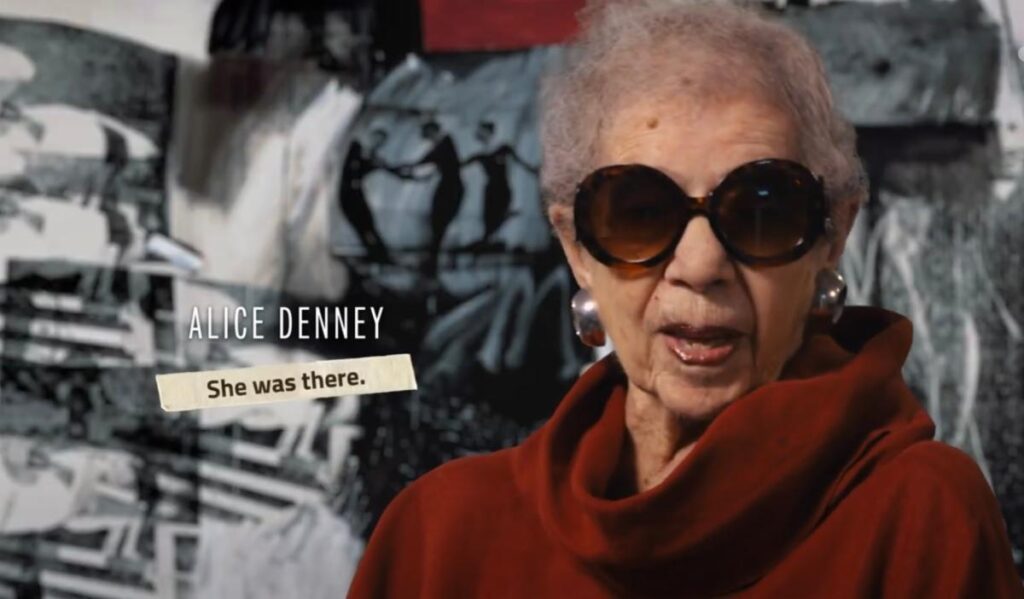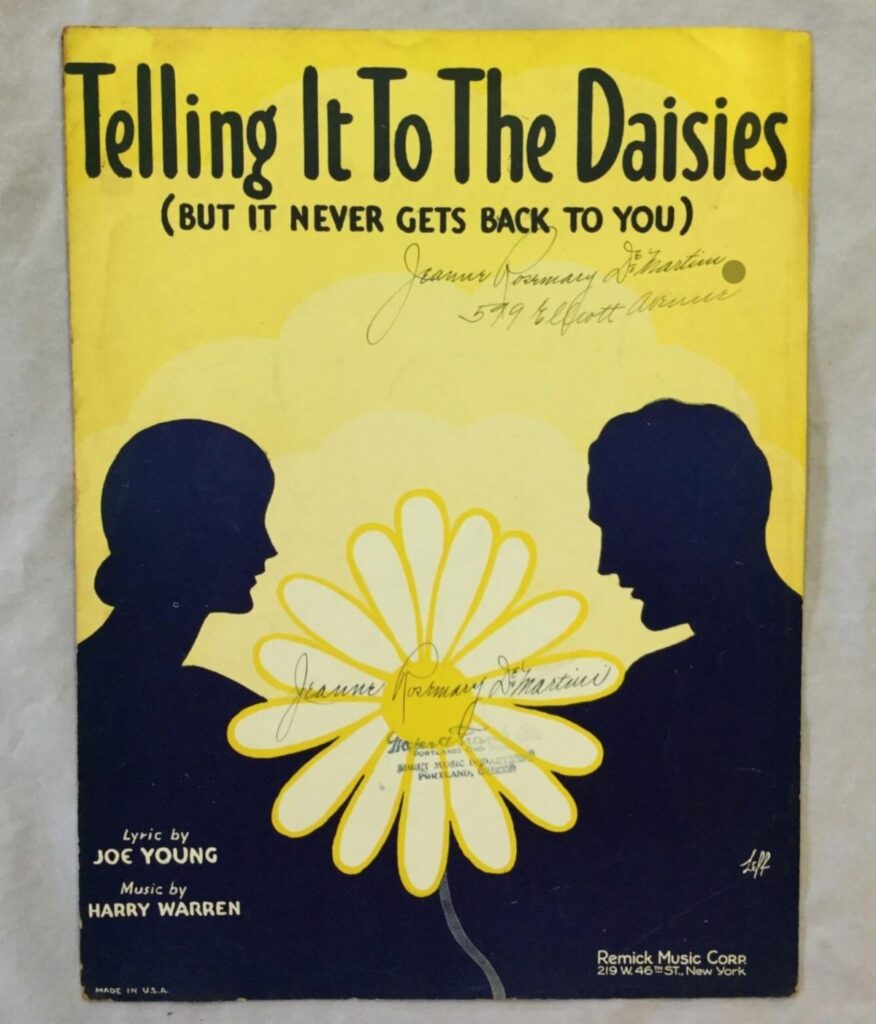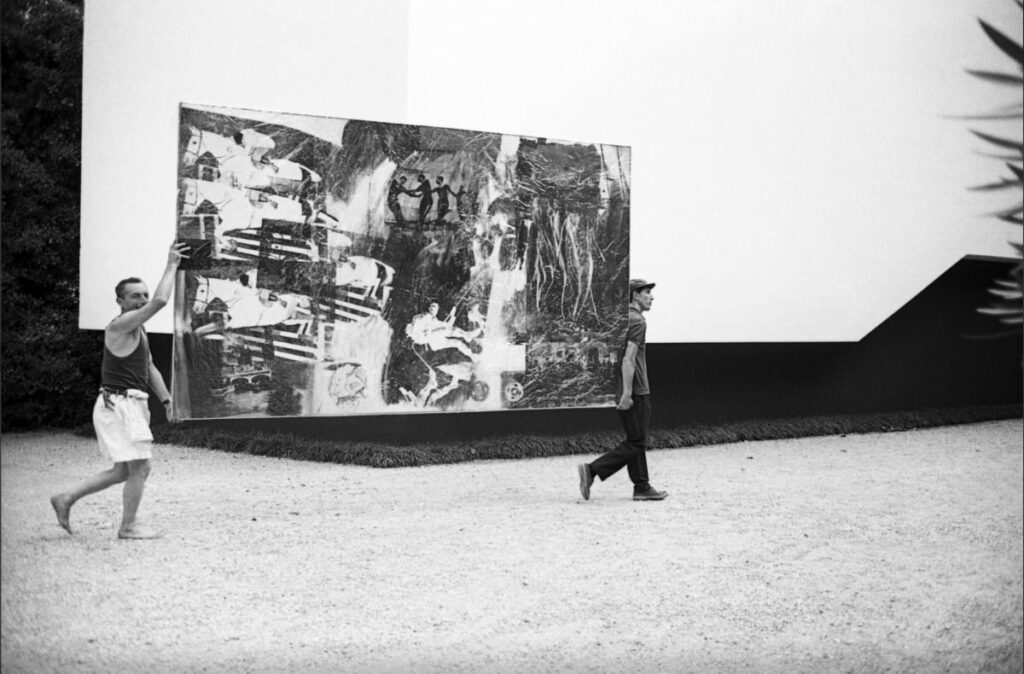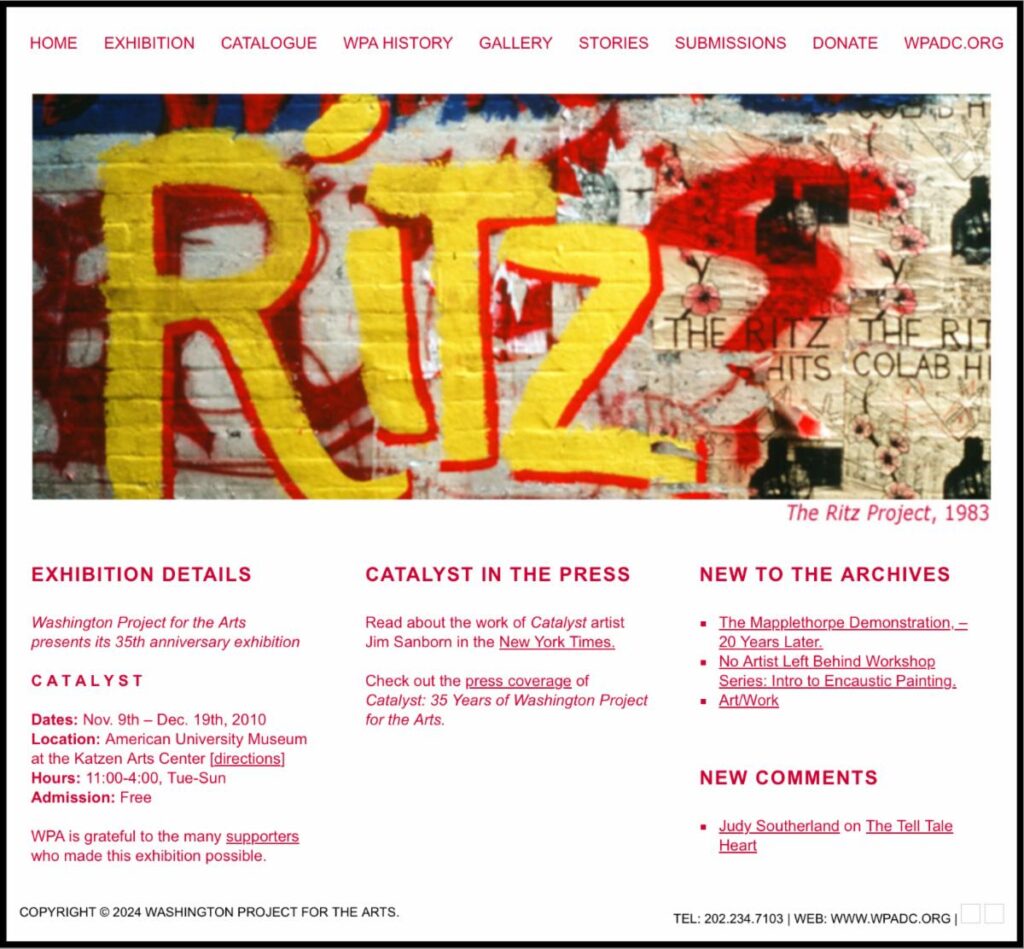“The Art of Remembering & Tropical Sleaze” with Travis Chamberlain
Get a newsletter every other week from WPA
Join Our Mailing List
Lately, Team WPA has been thinking a lot about the things that happened before us that have made it possible for us to be here doing what we do today.
I was recently invited to join chosen family and friends of WPA’s founder Alice Denney at an intimate gathering to honor her memory following her recent passing at the impressive age of 101. I never met Alice, unfortunately. Our paths in DC only overlapped briefly during the (over)extended period of time I’ve been transitioning my life from NY to the District. I was looking forward to introducing myself and was excited to share with her our big news about receiving funding from the DCCAH to support development of our new digital archive—just in time for WPA’s 50th Anniversary year in 2025. We received that news literally the day before we learned that she had died.
I had already envisioned an initial archiving focus on WPA’s founding years and was excited to rekindle WPA’s relationships with the original generation of artists and arts workers who helped build the foundation of the resilient, resourceful, and defiant organization we have inherited. With news of Alice’s passing, I knew then that we would dedicate an initial chapter of our archiving efforts this year to her visionary work as a curator, bridge-maker, and all around mover-and-shaker.

I learned at the memorial gathering that, up to the end, Alice was just as she always was: wry, sharp-witted, impassioned, determined, self-assured, indominatible—a “true class-act” as many may have once said. There was a video of Alice singing “Telling it to the Daisies,” a favorite tune of hers from the 1930s that she was known to hum around WPA’s first office (and pretty much anywhere she went, really). Artist Charles Lane, Zoomed in from Los Angeles, performed the tune alongside her in a dimension-spanning virtual duet (thanks to some clever video wizardry by our host Randall Packer). There were stories about early WPA shows hung on pegboard and produced for $25; about a book she was writing based on her life that remained unfinished; about her instrumental role introducing Robert Rauschenberg to DC and helping to bring his work to the 1964 Venice Biennale where he won the Golden Lion, launching American Pop-Art onto the global stage (I’m excited to check out the new documentary Taking Venice for all the juicy behind-the-scenes details on that controversial and pivotal moment in art history). I felt humbled by these stories of Alice’s many feats of daring and dazzlement, and was truly touched to be welcomed so warmly into the company of many of her near-and-dears as WPA’s new director.
I had already envisioned an initial archiving focus on WPA’s founding years and was excited to rekindle WPA’s relationships with the original generation of artists and arts workers who helped build the foundation of the resilient, resourceful, and defiant organization we have inherited. With news of Alice’s passing, I knew then that we would dedicate an initial chapter of our archiving efforts this year to her visionary work as a curator, bridge-maker, and all around mover-and-shaker.
I learned at the memorial gathering that, up to the end, Alice was just as she always was: wry, sharp-witted, impassioned, determined, self-assured, indominatible—a “true class-act” as many may have once said. There was a video of Alice singing “Telling it to the Daisies,” a favorite tune of hers from the 1930s that she was known to hum around WPA’s first office (and pretty much anywhere she went, really). Artist Charles Lane, Zoomed in from Los Angeles, performed the tune alongside her in a dimension-spanning virtual duet (thanks to some clever video wizardry by our host Randall Packer). There were stories about early WPA shows hung on pegboard and produced for $25; about a book she was writing based on her life that remained unfinished; about her instrumental role introducing Robert Rauschenberg to DC and helping to bring his work to the 1964 Venice Biennale where he won the Golden Lion, launching American Pop-Art onto the global stage (I’m excited to check out the new documentary Taking Venice for all the juicy behind-the-scenes details on that controversial and pivotal moment in art history). I felt humbled by these stories of Alice’s many feats of daring and dazzlement, and was truly touched to be welcomed so warmly into the company of many of her near-and-dears as WPA’s new director.

Our archive project kicks off in earnest this month as we begin working with developers to build out the framework that will become the online repository of our history and expand to hold the many new stories we will make together in the years to come. It’s an ambitious project that raises many tangled questions about what gets remembered, what gets left behind, and what was left out to begin with. But it is essential for us to retrace our history, reconcile with what it has to teach us, and recognize how the actions, efforts, and creativity of others have brought us to where we are today. As we continue leaning into work that is anchored in collaboration, discourse, and experimentation, we recognize the importance of the archive.
Nostalgia is often poopoo-ed as a deadening, backwards-looking force in the contemporary art world, but the act (and art!) of remembering on the other hand—something that is done actively in the present—is always an opportunity to learn more about who we are, where we’ve come from, and where we might want to go together next as an organization, a community, and, of course, individually as artists and humans.
This spring and summer we’ll be hosting a series of residencies for artists to research different aspects of WPA’s past (details to be announced soon!). This work will inform the development of our archive work and, we hope, push at the borderlines of how the archive might function as a curatorial platform for artists.
Our theme for this year’s Collectors’ Night, “Tropical Elegance” is a playful tribute to Alice’s tenure as our founding director, a reference to WPA’s 10th Anniversary auction gala, which had the kitschy-trashy theme of “Tropical Sleaze” (more on this here). There are other things already in the works for our 50th Anniversary year that we’re excited to share soon, but for now I invite you to check out our previous attempt at a digital archive, developed in 2010 in conjunction with WPA’s 35th Anniversary exhibition Catalyst. The Catalyst website was intended then to serve as a digital archive for WPA’s future, but has, alas, become terrifically outdated over the intervening decade plus. As we look to build a new digital archive it is inspiring to look back at where we started and the legacies we have inherited that will propel us forward into new chapters of radical experimentation and discovery.
—Travis Chamberlain, Director

